Transcript
Hi all, and welcome to Conservation Realist - a podcast and newsletter featuring real conversations for better conservation.
Yes, I realize that having the words "conversations" and "conservation" in the same tagline is potentially confusing. Actually, two of my younger colleagues in Myanmar once ran an English language course called "English Conversation for Environmental Conservation," and I had lightly cautioned them about this being potentially tricky for English language learners (or really, anyone). And here I am, doing pretty much the same thing.
And with that, I'm very excited to launch this endeavor with this introductory episode!
[Theme music]
That was a song written and performed by a friend in Myanmar, Soe Moe Thwin, and his collaborators Zyan Htet and Min Min, for this podcast. It's called "The Green Touch" and I'll post the translated lyrics and a bit more about how I came to meet Soe Moe Thwin in a future episode. In the the meantime, please consider checking out his YouTube page!
If you're here, there's a good chance you know me already (thank you, friends). But in case you don't, I am Dr. Tara Sayuri Whitty. I am currently a freelance consultant working with diverse conservation organizations to support thoughtful implementation of projects. This includes evaluating project plans, performance, and impacts - a step that is all-too-often neglected - as well as guiding social-ecological research, developing training materials and programs for organization staff and stakeholders, and writing reports.
I've studied and worked in conservation since around 2003 (20 years?!). It's been a fantastic privilege to experience adventures from trailing zebras in Kenya, to hanging out with monkeys in Thailand, to searching and stalking dolphins and porpoises in different countries in Southeast Asia. But what has resonated with me the most - what has moved me and helped me grow, both professionally and personally - is learning from and about the humans that are linked to conservation issues where I've worked. While interviewing fisherfolks doesn't seem quite as thrilling as, say, diving with whale sharks, it's taught me so much more than any of the amazing wildlife encounters I've been lucky to experience.
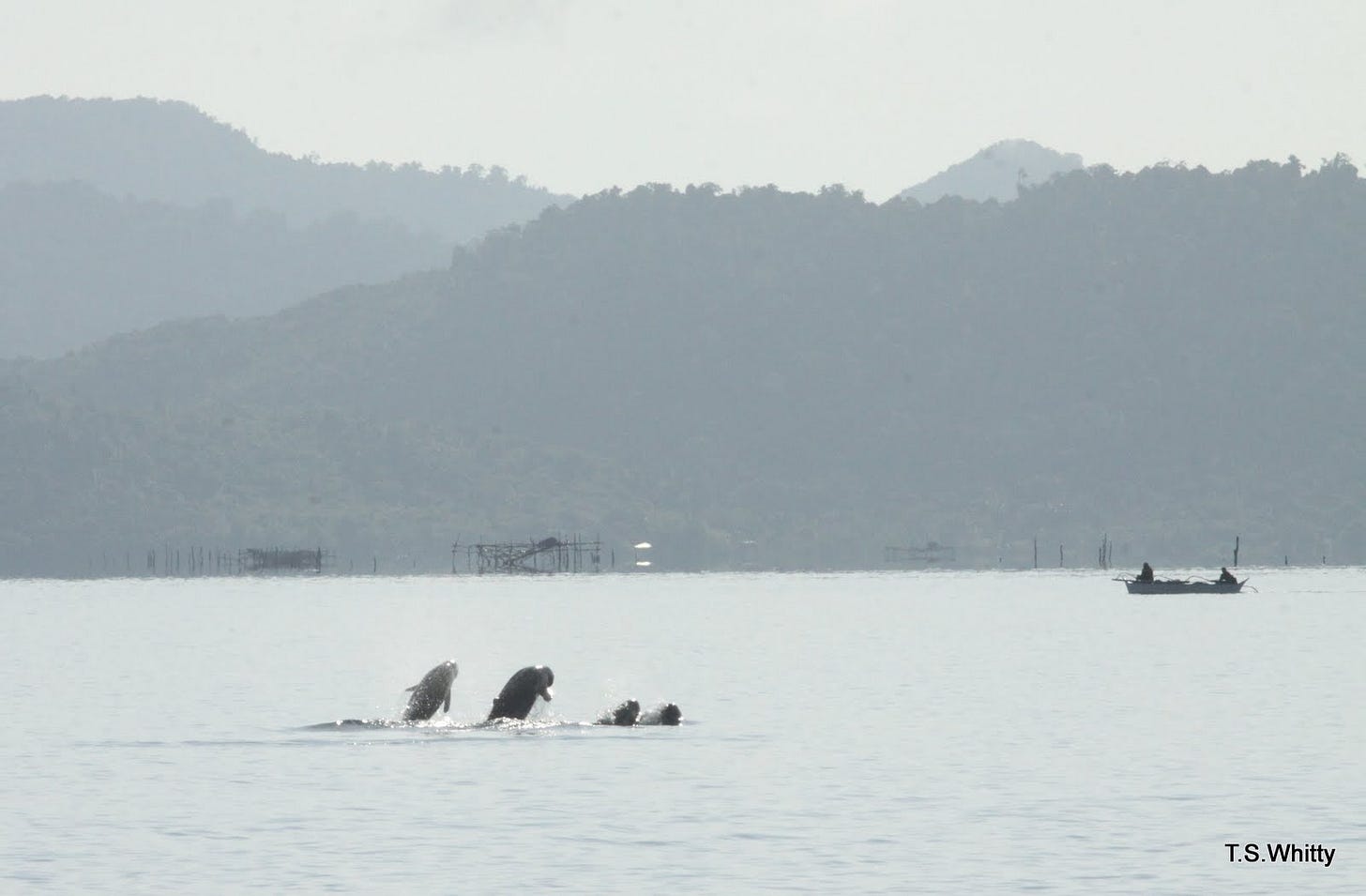
This brings me to the unifying theme of this project: conservation is a human process. It is about human values, human systems, and human realities. We need to recognize, understand, and embrace this reality to meaningfully improve how conservation works. We need to integrate this reality in: the design, implementation, and evaluation of conservation projects; the ways that aspiring conservationists are trained; the very structure of how conservation as a sector is funded; and how decisions are made about conservation, from the local to global scale.
Such integration requires meaningfully working for inclusion, equity, dignity, agency, and mindfulness. It requires honest and forward-looking evaluation of the weaknesses and more difficult truths in the sector, beyond both "doom and gloom" narratives and too-easily-appeased optimism. And you might see here, in this contrast between pessimistic and optimistic viewpoints, where the name for this podcast came from - the realist (I'll delve a bit more into this in a future episode).
This human reality of conservation might seem intuitive to many of you. It seemed like common sense to me, early in my career, when I was able to visit field sites and take in not only what was happening with the animals and plants we were studying, but also the people living around them. It's certainly not a novel realization that humans are central to the whole premise and endeavor of conservation; in some cultures, this idea has been ingrained in traditional knowledge, and even in modern Western science, there have been many brilliant researchers and practitioners who have recognized this for decades.
Yet, frustratingly, somehow conservation as a sector has still not adequately integrated this reality into its structure and practices. Progress is being made, thankfully, but it is slow. And I firmly believe there are both major structural changes needed, as well as relatively actionable changes that could make a great deal of difference to individual conservation projects and organizations.
This belief is why I genuinely enjoy working as a consultant. And this belief motivated the creation of this entity, Conservation Realist. In this podcast-newsletter hybrid, I'll dive into intriguing and informative ideas and stories that hold great potential for improving conservation as a field. Through late July, the podcast episodes will be weekly, and will be posted with transcripts and links to additional resources. Most episodes will be conversations with colleagues and friends whose work I admire, interspersed with episodes where I dive a little deeper into a particular topic. Then there is an additional "deep dive" via newsletter, which will start off in monthly instalments (I'd love to do more, but don't want to overwhelm you!). All will be posted at conservationrealist.substack.com, with the podcasts also posted to Spotify and Apple Podcasts if all goes to plan.
As a teaser, the episodes and newsletter will cover topics such as: "parachute science" and decolonizing conservation, including an impassioned episode on the "Tyranny of Experts"; how to use marketing for "behavior change" without the sort of icky paternalistic overtones of manipulation; systems thinking, Design Thinking, and human-centered research; failures in conservation and how to deal with them; realities of implementing conservation in extremely challenging contexts (e.g. a military coup during a global pandemic); and advice for aspiring conservationists.
Before going further, I'd like to clarify some things and touch on some logistics:
This is not a climate change or social justice podcast! These topics will certainly be integrated into this podcast, because of course they are important and intersect with biodiversity conservation, but there are many excellent podcasts and newsletters out there by folks who are better equipped to delve into those topics than I am.
Because most of my work experience has been in Southeast Asia, most of my guests for this first season are my friends and colleagues from that region; this is a personal project, and one that I feel a bit shy about, so starting with friends just made sense. I would love to have more representation from Africa, Latin America, Oceania, etc., in future seasons - if this goes well enough to have future seasons!
Similarly, there will be disproportionate representation of marine conservation efforts, since most of my experience and close connections are in the marine realm.
I hope that this will be useful to diverse audiences and not just conservation nerds, so I am very open to feedback about how to make things more accessible and appealing.
Discussion is encouraged! Please feel free to chime in on the comments section.
This is entirely an unfunded side project (that I somehow decided to launch during what's becoming one of the busiest times of my life in recent memory), so I appreciate any patience with subpar sound quality, editing, etc.
My hope is that those of you who have the means to will find Conservation Realist useful enough to donate whatever amount you feel is appropriate. Feels presumptuous to suggest it, but it would be greatly appreciated!
It seems that "liking", "subscribing", "commenting", and "sharing" on whatever platform you're using to access this is helpful, so please do that if you'd like to support this project!
I do have an Instagram account for this (@conservation_realist) just as another way to share information as well as to promote the podcast, so if you're on Instagram, give this a follow and I'll see you there!
So, as I bring this introduction to a close, I'll share a little more about me and how I came to launch Conservation Realist now.
If you know me, you'll know that I'm not one for self-promotion. I'd rather actually do good work in the background than be front-and-center. For those who get a kick out of the Myers-Briggs personality types (…like me), I'm an INFJ or the "dreamer who does." I am profoundly driven to truly make the world a better place, through idealistic but pragmatic action. I share this because this is the underlying mindset of this podcast and newsletter. And I realized late last year that, in my present circumstances, Conservation Realist is how I can best contribute to the field of conservation in a way that my consulting work cannot.
What are my present circumstances? In late 2019, I resigned from an intense but fulfilling job with International Union for Conservation of Nation (IUCN) in Myanmar to focus on being my nonspeaking autistic brother's primary communication support person here in San Diego. Seeing my brother absolutely blossom since then has been the most amazing experience of my life; he is now a published author and well-recognized advocate (check him out at DannyWithWords.com), and I now have the privilege of more deeply knowing one of the most precious people in my life who, for over three decades, had no reliable means of communication.
It's turned into a monumental shift in my life direction, as I am now committed to being by his side as much as possible and have now started training to support communication for other nonspeakers and their families. In short, a full-time career in conservation is no longer in my future. I still enjoy my conservation consulting work, and would love to continue working on meaningful conservation projects in the future. But I feel compelled to more broadly share the lessons I've learned from respected colleagues and from community members who I've met, as well as from my own experiences. I’ve seen first-hand how these lessons could dramatically improve how conservation operates, and it's important to amplify them, even if it's via a modest home-grown podcast and newsletter.
Conservation Realist is part of my earnest personal mission to contribute what I can, in my new reality, to shifting mindsets in the field for more effective, equitable, and ethical conservation work. I'm so glad that you are here with me - I know we'll learn a lot together!
So with that, I bring this first episode to a close. I encourage you to stay tuned for all of the amazing conversations to come! Next week will feature an interview with my good friend, Dr. Jo Marie Acebes, and we'll be talking about her (unfortunately) all-too-real experiences with parachute conservation. Thank you again for being here!

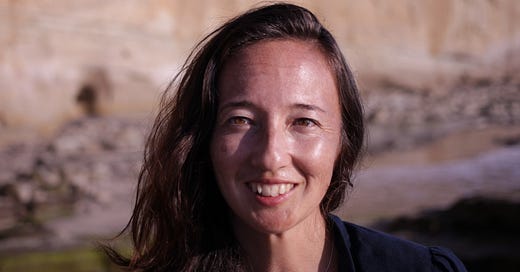



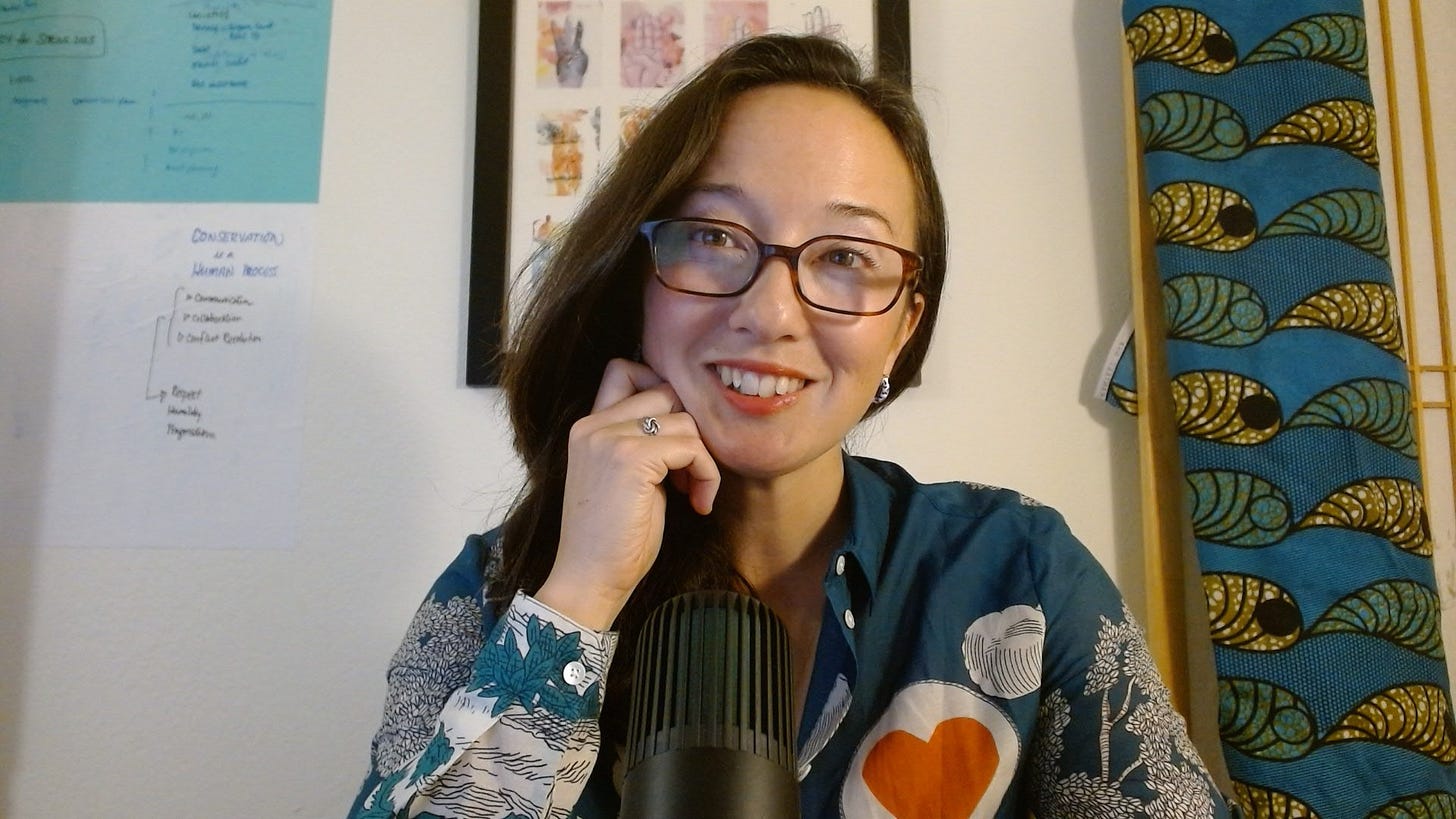
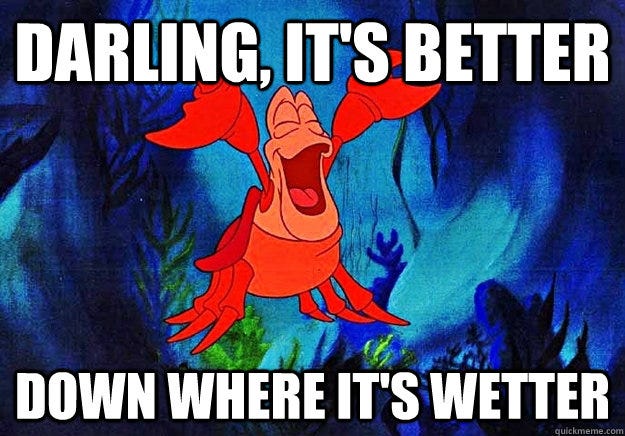

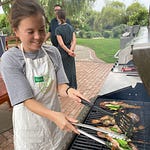


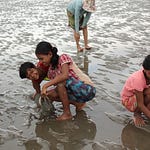
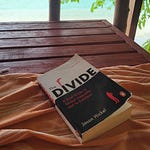

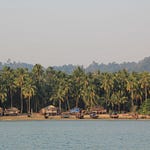
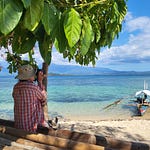
Share this post